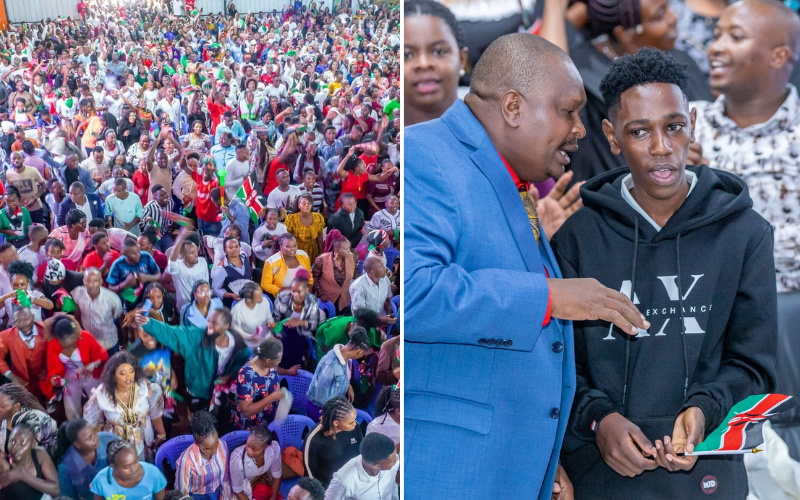Telecommunications giant Safaricom is facing a storm of criticism after Bishop Benson Gathungu Kamau, the head of Jesus Compassion Ministries (JCM), accused the company of intentionally switching off its network during a major fundraising event for viral TikTok sensation Vincent “Kaluma Boy” Kaluma.
The alleged shutdown occurred on Sunday during a thanksgiving service at JCM headquarters along Nairobi’s Eastern Bypass, where thousands of supporters gathered to celebrate Kaluma’s remarkable rise from hardship and raise funds for his ailing father. In less than 30 minutes, well-wishers had reportedly contributed over KSh 2 million before the event was disrupted by what participants described as “mysterious” network and power outages.
According to Bishop Gathungu, the disruptions began when the Kenya Power and Lighting Company (KPLC) allegedly cut electricity supply to the area, followed shortly by the sudden loss of Safaricom network coverage. The blackout paralyzed M-Pesa transactions and interrupted the church’s livestream of the event.
In a viral video from the service, the bishop is seen appealing directly to the company:
“To our network provider, Safaricom… We want to raise money for this family. Don’t switch off the network.”
He claimed the interruptions were deliberate, accusing Safaricom of undermining a genuine community effort to support the teenage TikToker, whose story has moved the nation.
Kaluma, a 17-year-old from Othaya, Nyeri County, rose to fame through emotional TikTok videos showing his struggle to care for his sick father while juggling odd jobs. His sincerity and resilience touched millions, leading to nationwide fundraising campaigns and a full scholarship to the East African School of Aviation.

The bishop’s claims have ignited widespread outrage online. Social media users questioned why both power and network connectivity failed at the peak of a highly publicized charity event. Some drew parallels to past accusations that Safaricom throttled connectivity during the 2024 anti-government protests and the Githurai massacre. One X (formerly Twitter) user commented, “When the people unite for good, suddenly there’s no power, no network. This is not coincidence.”
Despite the alleged sabotage, the fundraiser exceeded its goal, a moment many described as proof of Kenya’s unbreakable spirit. “You can’t switch off God’s blessings,” one attendee said.
As of Monday, Safaricom had not issued any official statement on the accusations. The company has previously attributed similar disruptions to “technical challenges” and “reduced bandwidth on key traffic routes,” explanations that many Kenyans now view with skepticism.
The incident has reignited debate over corporate accountability and control of digital infrastructure in Kenya, with critics warning that unchecked monopolies pose a threat to freedom of communication and public trust.
For now, Kaluma Boy’s story remains a symbol of hope, generosity, and the power of collective goodwill — even amid growing concerns about the forces that appear determined to silence it.
There's no story that cannot be told. We cover the stories that others don't want to be told, we bring you all the news you need. If you have tips, exposes or any story you need to be told bluntly and all queries write to us [email protected] also find us on Telegram

